Pacifiers can be INCREDIBLE soothing tools for little babies. But how do you know when to introduce a pacifier to your little one? Or what about when it’s the right time to ditch it?
I want you to know that while your baby doesn’t need a pacifier, I am 100% in favor of using them…and here are a few reasons why:
- It’s a GREAT tool for soothing
- It can be hard to always get your baby to your breast
- Pacifiers can actually help with breastfeeding
- They can help detect a tongue or lip tie
- *To read more about each of these points, click here to check out my “Can Newborns Sleep With a Pacifier” blog!
In this blog post, I’m going to talk about:
When can I introduce my baby to a pacifier?
What do I do if my baby has a hard time keeping the pacifier in their mouth?
When is the right time to wean off of the pacifier?
Grab a paci, your little one, and let’s get right to it!
When can I introduce my baby to a pacifier?
I recommend offering a pacifier to your little one as soon as possible. If you are breastfeeding, offer both the breast and the pacifier a lot in the beginning. Not only will it give your nipples a break, but it will also help them learn to latch better – it’s a lot easier to reposition their pacifier than to reposition them on your breast.
At one point, did you ever believe that ALL babies would happily use a pacifier the first time they were offered one? I think most of us did! The truth is, it’s actually quite common for babies to need some time, patience, and support to get the hang of finding comfort in this great soothing tool.
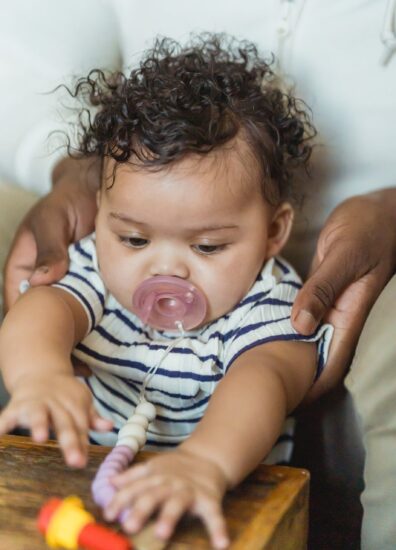
Here are my two top tips for when it comes to offering the pacifier:
1. Start early
The sooner you start the sooner they will get the hang of it. And the myths about nipple confusion have been debunked in recent years.
2. Practice, practice, practice
Give your little one a lot of opportunity for your baby’s tongue to explore and get the hang of it in a no-pressure situation (AKA – not when they are losing their mind crying). It might feel like they are pushing it out when they are actually trying to figure it out. Try aiming the nipple to the roof of baby’s mouth…this might help too!
Click here to watch more about introducing a pacifier on Instagram.
What do I do if my baby has a hard time keeping the pacifier in their mouth?
The first person to invent a safe product to keep a pacifier in a baby’s mouth wins $1 million! But seriously, keeping a pacifier in can feel like a never-ending yo-yo dance.
Here are four tips and tricks to help your little one take AND keep a pacifier in:
1. Gently pinch the outside corners of their mouth
This will help draw their lips up, ensuring a better latch on the pacifier.
2. Play tug of war
When your baby has the pacifier in their mouth, gently tug on it so they can practice sucking it back in. This helps strengthen their tongue and mouth muscles.
3. Teach their tongue
Tongues should rest on the roof of our mouths. This is actually super important for mouth development, feeding issues, airway issues, and more. You can teach your baby to do this by gently pushing on their “chin button” (this is the soft part right behind the bone on their chin). You can do this 20 or so times a day to help teach your baby to suction their tongue to the roof of their mouth.
4. If your baby dozes off…
If they fall asleep with the pacifier in their mouth, try to gently take it out and press their “chin button” so that their tongue can take the place of the pacifier.
Click here to watch me demonstrate these tips and more on Instagram.
If it feels like your baby HATES the pacifier, be patient and don’t give up! Often, we mistake babies pushing the pacifier out as them not wanting it, when this isn’t always the case. When newborns suck, they thrust out and down with their tongue before scooping back in, which can make the pacifier pop out of their mouth. So keep trying! Gently hold the pacifier until their tongue can coop around and find it.
If you truly feel that your baby doesn’t want it, go ahead and take a break. You don’t have to add any extra stress and/or pressure here! You can always try again later.
Click here to watch more on what to do if your baby won’t take a pacifier on Instagram.
When is the right time to wean off of the pacifier?
As much as we loooooove a pacifier, babies can definitely become very dependent on them, making it a tricky thing to drop.
The best time to ditch the pacifier is either before 6 months old or after 2(ish) years, around the time they are dropping their last nap. Weaning off of the pacifier anytime in between here and you are more likely to have sleep issues. Here’s a SUPER concise explanation of how dropping the pacifier might work at different ages:
Newborns:
If your baby is an older newborn and you’re doing the paci yo-yo all night long, it may be time to wean them off.
4-24 Months:
You can totally drop the pacifier during sleep learning as your baby learns other soothing strategies. For some babies, it actually happens naturally!
*To read about how using a pacifier can work with sleep learning, click here to check out another blog post.
Toddlers:
If you decide to wait until they are past 2 years old, then you can talk to them about it, involve them in the process, and make it an exciting and positive experience. If you’re wondering how to wean your baby off of their pacifier, click here to read my blog post all about “How to Wean Off The Pacifier at Night.”
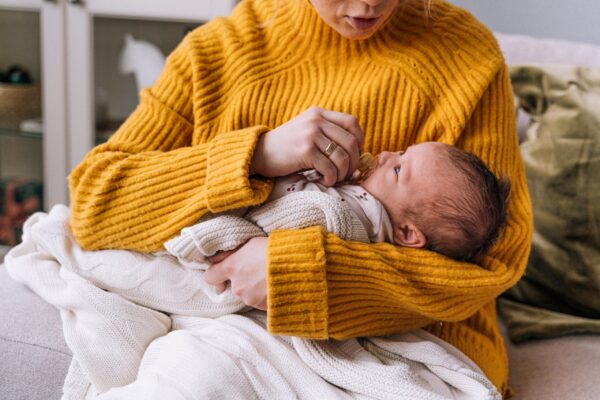
Recap of When to Introduce a Pacifier
Introducing a pacifier to your baby early and often gives you the best chances of utilizing it as an effective soothing tool. If you need any support with pacifier issues, I have a troubleshooting guide on everything pacifier-related in my 0-4 Months Content Library and my 4-24 Months Content Library.
If you want support troubleshooting your baby’s pacifier situation, I have a team of incredible certified pediatric sleep consultants who can be in your corner supporting you throughout your unique sleep situation. Click here to grab a consultation with one of them!
Whether your little one is a newborn (0-4 Months Content Library), 4-24 months (4-24 Months Content Library), or a toddler (2-5 Years Content Library), we have the resources you need to get your family the sleep you all deserve!
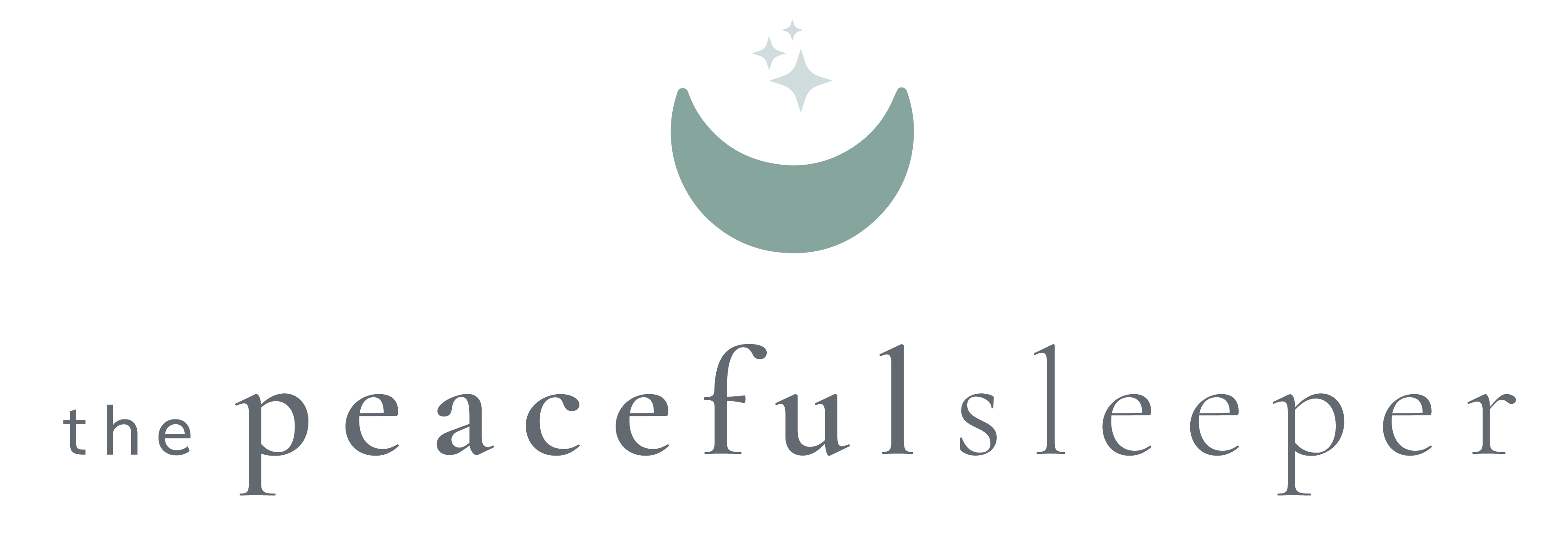
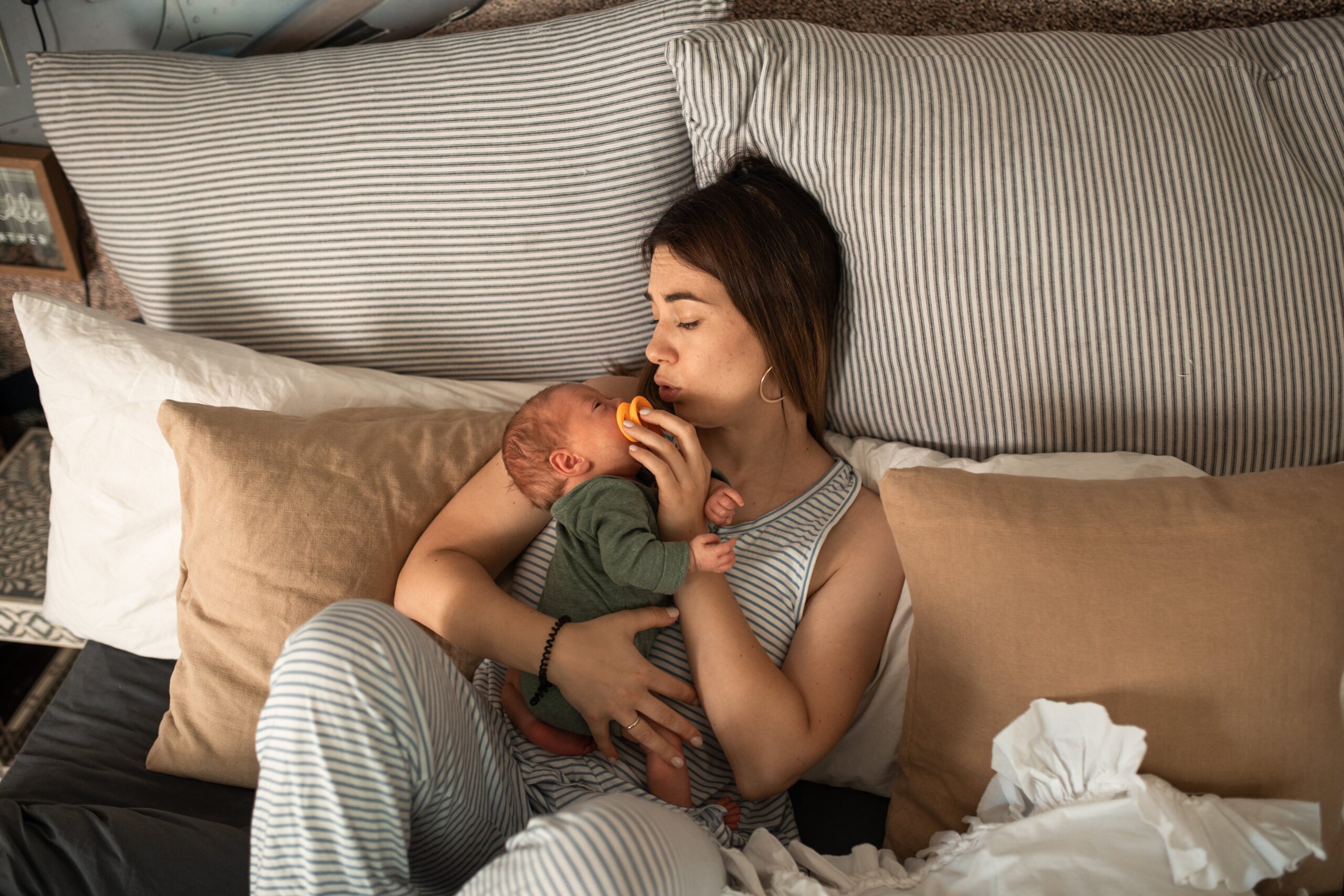
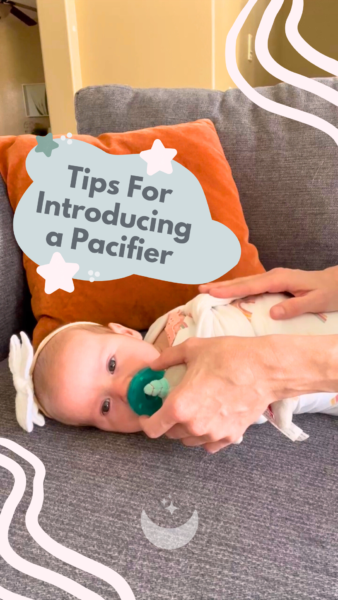
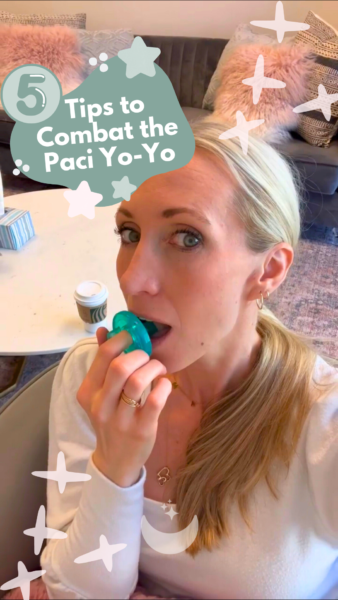
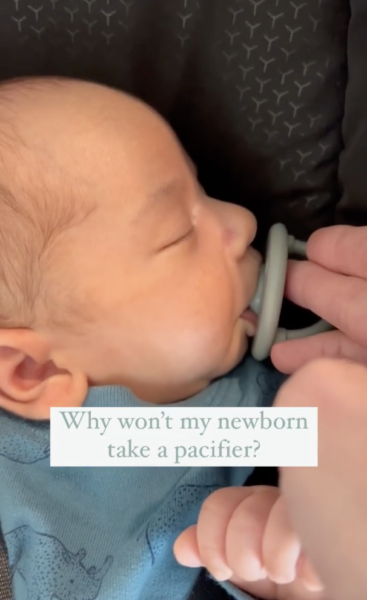
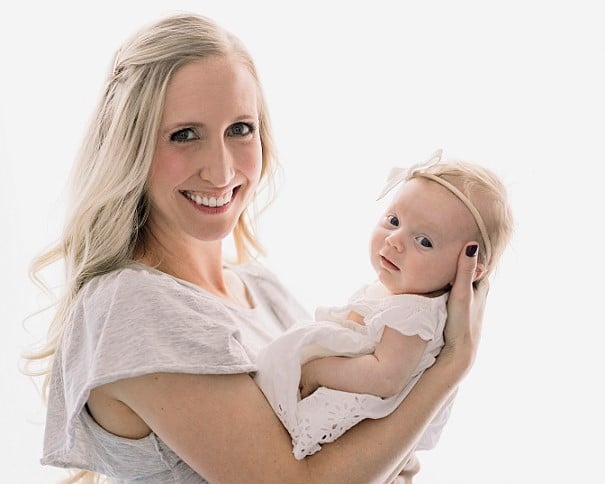
0 Comments